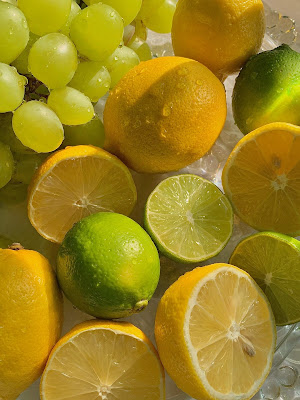10 Vitamin C Rich Foods You Need To Add In Your Daily Diet
Vitamin C
Water-soluble vitamin C, also known as L-ascorbic acid, is an essential part of the diet. Vitamin C is responsible to perform many important functions in the body.
In particular, it plays a crucial role in boosting immunity, preventing infection and fighting disease. Vitamin C cannot be stored in the human body and must therefore be supplied daily through food.
It breaks down in water and the excess is excreted in the urine. So, humans have to get it from other sources. Vitamin C can be obtained in the form of dietary supplements or from many fresh vegetables and fruits.
People can meet their daily needs if they eat a varied and healthy diet. According to many researchers, eating foods rich in vitamin C is essential for maintaining a healthy body.
What Is The Role Of Vitamin C In Our Body
The body needs vitamin C for many physiological functions.
- Facilitates the hydroxylation of glycine, proline, lysine, carnitine and catecholamines as well as the synthesis and metabolism of tyrosine, folic acid and tryptophan.
- Lowers blood cholesterol levels as it facilitates the conversion of cholesterol into bile acids. The transition from iron state to iron state also increases iron absorption in the digestive tract.
- Protects the body from various harmful effects of free radicals, pollutants and toxins as it is an antioxidant.
- Vitamin C is widely used to treat and prevent myriad problems such as diabetes, atherosclerosis, colds, falls, glaucoma, macular degeneration, stroke, heart disease, malignancy, etc.
- Vitamin C is said to boost immunity by affecting various components of the immune system.
- Vitamin C accelerates wound healing.
Recommended Dose Of Vitamin C
It is assumed that the human body contains around 1.5 grams of vitamin C, i.e. around 20 milligrams per kilogram. Due to the fact that its daily need is influenced by many factors, including physiological conditions, stress and disease, estimating daily human needs is difficult, if not impossible.
The recommendations are between 40 and 120 mg per day depending on the country. An additional 5-10 mg is recommended for pregnant women (25 mg for lactating women).
A daily dose of about 10 mg is sufficient to prevent scurvy in the general population.
What Happens In Vitamin C Deficiency
Deficiency of this vitamin is often associated with weakness, disease, bleeding gums, scurvy, impaired wound healing, hemorrhage, muscle wasting, atherosclerotic plaques, and neurotic disorders.
Foods High In Vitamin C
One of the most important nutrients for the body is vitamin C, which can be found in citrus fruits and vegetables.
The following is a list of 10 fruits and vegetables that are thought to be good sources of vitamin C:
1 Citrus Fruits
Apart from bioactive compounds (flavonoids, phenolic acids and coumarins), Citrus fruits are supposed to be the rich source of nutrients (vitamin C and vitamin E) and minerals (selenium, zinc, copper, iron and manganese).
Oranges are a good source of vitamin C, but they aren't the only citrus fruit that contain this vital nutrient. The amount of vitamin C in a particular fruit depends on its size and level of ripeness.
Vitamin C is extremely abundant in raw citrus fruits, with a medium-sized orange providing 70 mg and a grapefruit providing approximately 96 mg. You can get nearly 71 mg of vitamin C from a cup of orange juice.
2 Potatoes
A medium-sized red potato—the standard waxy brown variety—provides approximately 19% of your recommended daily value vitamin C. They are likewise a decent wellspring of potassium and vitamin B6.
Potatoes are moderately low in vitamin C yet assume a significant part in your admission as they are eaten in enormous amounts. Whether cooked or eaten crude, they are a satisfactory wellspring of vitamin C. A serving of potatoes gives 5-40 mg of vitamin C.
3 Broccoli
Surprisingly, consuming a cup of broccoli is equal to consuming as an orange in terms of vitamin C. Calcium, iron, phosphorus, potassium, zinc, thiamine, riboflavin, niacin, and folic acid are all found in abundance in broccoli. A half cup of cooked Broccoli can provide approximately 57% of your recommended daily value of Vitamin C.
4 Red Cabbage
Red cabbage, otherwise called purple cabbage, is plentiful in vitamin C and low in calories. A portion of a cup contains only 14 calories however almost 30% of the suggested everyday remittance of vitamin C. It's additionally loaded with fiber and different nutrients.
5 Papaya
Of the many fruits, Papaya is considered as one of the most consumed fruits worldwide. Not only the pulp but other parts of the plant (like leaves and seeds) also.
Papaya is the source of three important vitamins A, C and E. Papaya also provides minerals (magnesium and potassium) and B complex vitamins as well as food fibers. Besides these vitamins and nutrients papain is also obtained from papaya.
6 Kiwis
One serving of kiwi contains most of the recommended daily allowance of vitamin C. One medium size Kiwi, of around 64 mg can give you approximately 71% of your recommended daily value of Vitamin C.
Adding kiwifruit to a diet low in vitamin C has also been shown to significantly raise plasma vitamin C levels, according to studies.
7 Guava
The guava holds the record for vitamin C: Depending on the variety, a fresh guava contains between 73 and 247 mg. Most guavas give around 200% of the suggested everyday measure of vitamin C.
8 Strawberries
They're a decent source of fiber, folic acid, and cell reinforcements, making them an valuable addition to your general eating regimen.
Approximately 71% of your recommended daily value of Vitamin C can be obtained from half cup of fresh strawberries.
9 Bell Peppers
All of the peppers have low calories and a lot of nutrients, like potassium, folic acid, vitamin A, and vitamin C. Bell Peppers contain a larger number of supplements than other peppers.
Red bell peppers contain approximately 8 times more beta-carotene and 1.5 times more vitamin C when compared with green bell peppers.
When compared half cup of red bell pepper and green bell pepper, approximate percentage of daily value of vitamin C comes as 106% and 67% respectively.
10 Tomato
Each tomato contains approximately 17 mg of vitamin C, but the amount varies depending on size, variety, and other factors. Three fourth cup of tomato juice is supposed to provide 37% of daily value of vitamin C. That includes other nutrients like potassium, folic acid, and vitamin K.
Take Away
Vitamin C is considered as an essential cofactor for many enzymes. Vitamin C is involved in a variety of physiologic function, such as the formation of connective tissue correctly and hormone synthesis. vitamin C is moderately harmless, yet it is highly recommended to avoid high dosage of Vitamin C.
High dosages of Vitamin C can cause recognizable side effects in a few vulnerable patients (for example patient with oxalate kidney stones). In outline, vitamin C is to a great extent non-poisonous, yet high dosages ought to be kept away from because of the uncommon however factual development of kidney stones and bounce back scurvy in babies.
Frequently Asked Questions
Is taking take too much vitamin C dangerous?
Due to its low toxicity, too much intake of vitamin C is not supposed to cause any adverse effect. However, the osmotic effect of unabsorbed vitamin C can lead to diarrhea, nausea, abdominal cramps, and other gastrointestinal disturbances.
Can vitamin C cause urinary problems?
Studies show that high intake of vitamin C can be a risk factor for kidney stones in males but not in females. During metabolism process of vitamin C, it converts into oxalate. hence, there is an increased risk of formation of calcium oxalate. People predisposed to kidney stone should take vitamin C with caution.
When should vitamin C be avoided?
Though Vitamin C is not toxic in nature, yet vitamin C supplementation is contraindicated in some conditions like thalassemia, glucose-6-phosphate dehydrogenase deficiency, sickle cell disease, and hemochromatosis. Diabetic and kidney patients should take vitamin C supplements with care as it raises blood sugar levels and risk of kidney stone formation.
Also Read:








Great initiative and easy to understand information👏
ReplyDeleteVery helpful and these are what we consume almost every day to stay healthy.
ReplyDeleteI knew citrus fruits had vitamin c, but I had no idea potatoes, broccoli, and red cabbage had vitamin c too! Thanks for sharing!
ReplyDelete